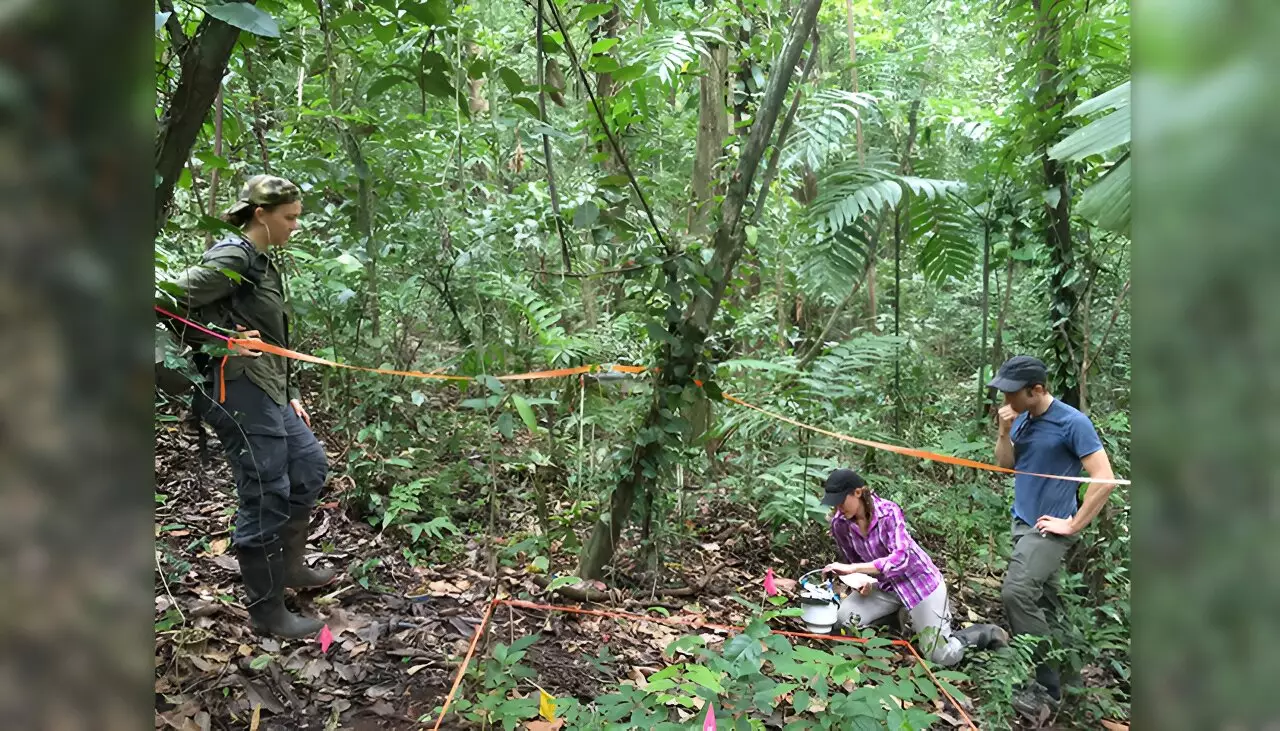Tropical forests play a critical role in the global carbon cycle, acting as a significant carbon sink. However, with the looming threat of climate change, the delicate balance of carbon in these ecosystems is at risk. New research from Lawrence Livermore National Laboratory (LLNL) sheds light on how the warming and drying of tropical forest soils can impact soil carbon vulnerability, potentially leading to increased carbon losses.
The study, published in Nature, highlights the potential consequences of climate change on tropical forests. The researchers found that both warming and drying of tropical forest soils could accelerate the loss of older soil carbon or reduce the incorporation of fresh carbon inputs, ultimately intensifying soil carbon losses. This, in turn, could have a negative impact on carbon storage in tropical forests under climate change.
Tropical forests are integral in the exchange of CO2 with the atmosphere and store a substantial amount of global soil carbon stocks. The short mean residence time for carbon in tropical terrestrial ecosystems means that any changes in carbon inputs or outputs could have rapid and significant consequences for the carbon balance in these ecosystems. Climate projections suggest a future that is both warmer and drier for much of the tropics, posing a serious threat to the delicate carbon balance in tropical forests.
The research conducted during climate manipulation experiments in Panama revealed that both warming and drying of tropical forest soils had distinct impacts on soil carbon. Warming accelerated the decomposition of older carbon, leading to increased CO2 emissions and depletion of newer carbon. On the other hand, drying suppressed the decomposition of newer carbon inputs, increasing the contributions of older carbon to CO2 release.
The study emphasizes the importance of considering carbon-14 values in understanding the mechanisms behind observed changes in tropical forests. Previous research focused on total CO2 flux rates, overlooking the intricate mechanisms that drive carbon balance in these ecosystems. By analyzing carbon-14 values, the researchers were able to determine the age of carbon sources being metabolized and released as CO2, providing valuable insights into the impact of climate change on tropical forest carbon balance.
The findings from the research underscore the vulnerability of tropical forests to climate change and the potential consequences for global carbon balance. As temperatures rise and droughts become more frequent and severe, the delicate carbon balance in tropical forests is at risk. It is crucial to continue studying and monitoring the impact of climate change on tropical forest ecosystems to develop effective strategies for mitigating carbon losses and preserving these vital ecosystems for future generations.


Leave a Reply